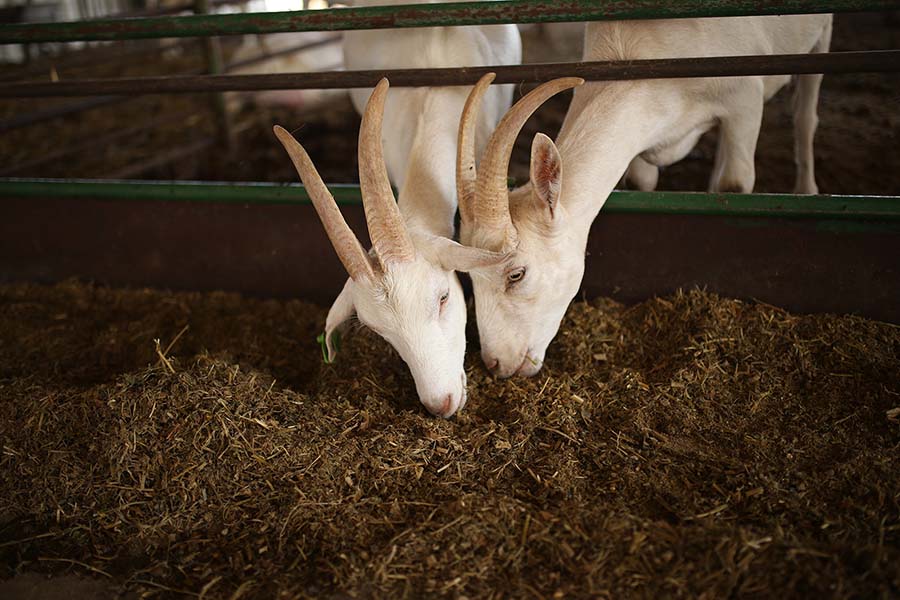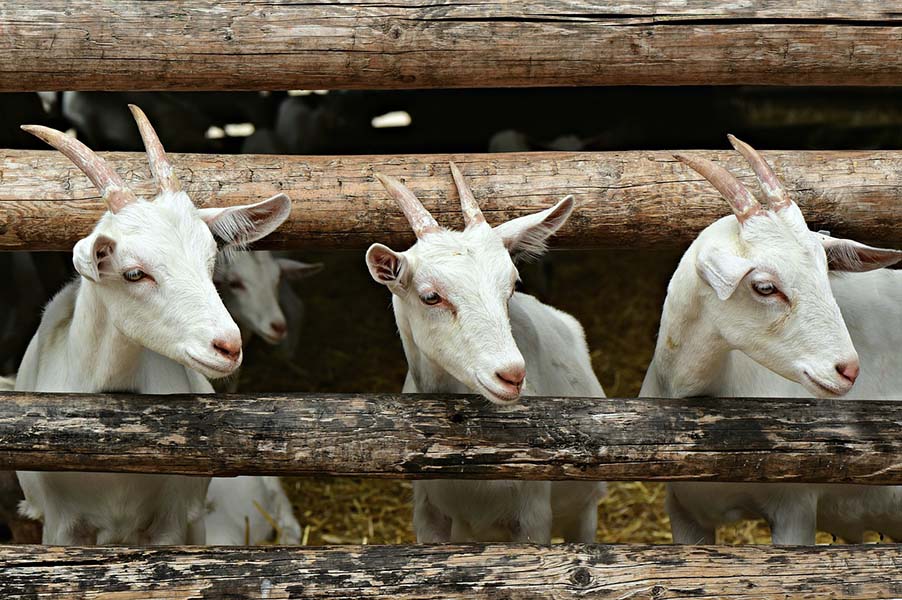Saanen Goats
Ali Baba’s goats are Saanen breed. This breed was mainly developed in the middle east but was influenced by the Saanen Goats of Switzerland. Known to be easy to care for but also calm, affectionate and extremely warm-blooded, Saanens have a short creamy-white coat that is sometimes tufted along the spine and thighs, while the ears are set straight. Saanen is sometimes called the ‘Queen of Dairy Goats’ due to her noble and majestic features, as in the photo below.
Our goats live in clean, bright, spacious and airy sheds with bedding of fresh straw changed for them twice a day. Contrary to popular belief, dairy goats are not hardy animals. In fact, they never feel well outside of shelter. When they escape, they quickly become restless and want to return to the barn as soon as possible. They do not like extreme cold or heat and prefer to be together with other goats.
Goats are milked twice a day, morning and evening. The milking parlor is very similar to that of cows, only slightly smaller. Like cows, goats know when to be milked and always arrive at the parlor in more or less the same order. Goats can continue to give milk for up to 2 years after giving birth, provided that the quality and quantity of milk remains perfectly good.


Why Goat Milk
- Goat’s milk is the closest to breast milk. Contains A2 protein with anti-inflammatory properties. The protein composition of goat’s milk allows for the formation of a softer clot that aids in digestion and prevents bloating.
- It has smaller fat molecules (exactly one-ninth the size of cow’s milk fat molecules), which makes it easier to digest when protein enters our stomach. It lowers bad cholesterol and increases good cholesterol, thus keeping your heart healthy.
- Goat’s milk helps prevent atherosclerosis, heart attack, stroke and other heart complications due to its balanced fatty acid composition. It also has anti-mucosal properties due to its lower fat content than cow’s milk.
- The high potassium content helps lower blood pressure.
- It also has a higher concentration of zinc, an important micronutrient that aids in antioxidant defense and protects us against neurodegenerative diseases.
- It contains higher selenium and calcium content compared to cow’s milk, which in turn boosts the immune system and bone formation in our body.
- Goat’s milk has a higher level of oligosaccharides than cow’s milk. These act as prebiotics in the gut and improve the health of the digestive system.
- The casein composition of goat milk allows lactose to pass quickly through the large intestine and prevents symptoms of lactose intolerance. This has increased the importance of goat’s milk in the infant diet, as it is less allergic to cow’s milk in some cases.
- Scientific studies have proven that regular consumption of goat’s milk increases the absorption of iron and copper. It also supports hemoglobin regeneration. It is an effective treatment for diseases caused by iron deficiency such as anemia and osteoporosis.
- Goat’s milk contains more vitamin A and lactic acid, improving the texture, quality and health of the skin. For this reason, goat’s milk is whiter than cow’s milk. Higher levels of vitamin A and lactic acid content help the skin get rid of dead cells and bacteria. Regular consumption of goat’s milk helps reduce acne, pimples and brighten skin tone.


